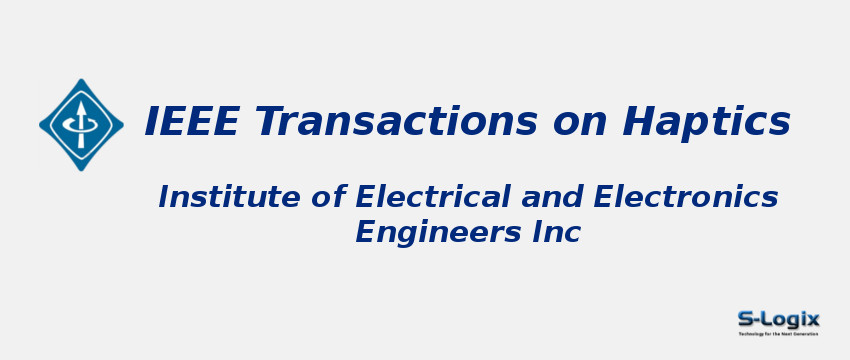Journal Home: Journal Homepage
Editor-in-Chief: Domenico Prattichizzo
Print ISSN: 1939-1412
Electronic ISSN: 2329-4051
Abstracting and Indexing: Science Citation Index Expanded, Scopus.
Imapct Factor 2024: 2.8
Subject Area and Category: Computer Sciences
Publication Frequency: Quarterly
H Index: 71
Q1:
Q2: Computer Science Applications
Q3:
Q4:
Cite Score: 5.6
SNIP: 1.394
Journal Rank(SJR): 0.900
Latest Articles: Latest Articles in IEEE Transactions on Haptics
Guidelines for Authors: IEEE Transactions on Haptics Author Guidelines
Paper Submissions: Paper Submissions in IEEE Transactions on Haptics
Publisher: IEEE Computer Society, IEEE Consumer Electronics Society, IEEE Robotics & Automation Society
Country: United States
